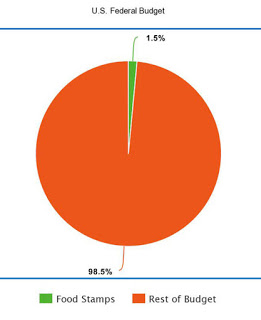Summary:
The human mind can't handle big numbers very well, says, Dean Baker, and when people hear that Billion had been spent on wekfare, they think that must be 30% of the federal budget, when really it is only a tiny percentage. He says that liberals must work harder to present the true facts, so that people can see that these programs are not expensive and do help a lot of people. If people knew the true cost, many more are likely to support these programs.
There really is no other side on this one. There simply is no good reason to not put numbers, and especially big budget numbers, in a context that is meaningful to readers. There is no serious dispute that almost no one can make any sense of these large numbers without any context.
This brings up the second reason not to try to push
Topics:
Mike Norman considers the following as important:
This could be interesting, too:
Robert Vienneau writes Austrian Capital Theory And Triple-Switching In The Corn-Tractor Model
Mike Norman writes The Accursed Tariffs — NeilW
Mike Norman writes IRS has agreed to share migrants’ tax information with ICE
Mike Norman writes Trump’s “Liberation Day”: Another PR Gag, or Global Reorientation Turning Point? — Simplicius
The human mind can't handle big numbers very well, says, Dean Baker, and when people hear that $70 Billion had been spent on wekfare, they think that must be 30% of the federal budget, when really it is only a tiny percentage. He says that liberals must work harder to present the true facts, so that people can see that these programs are not expensive and do help a lot of people. If people knew the true cost, many more are likely to support these programs.
There really is no other side on this one. There simply is no good reason to not put numbers, and especially big budget numbers, in a context that is meaningful to readers. There is no serious dispute that almost no one can make any sense of these large numbers without any context.
This brings up the second reason not to try to push media outlets on this issue—that it wouldn’t make any difference anyhow. The argument here is something to the effect that we have lots of people who hate these programs because they are racist. They want to believe that all their tax dollars are going to undeserving black and brown people, and they are not going to let the facts get in their way.
This is surely in part true. As has become painfully obvious in recent years, there is a substantial segment of the electorate that does not want to be bothered with facts. We can assume that this share of the population is somewhere between 25 and 35 percent. For these people, hitting them over the head with the fact that only a small portion of the budget goes to anti-poverty programs is not going to make any difference in their attitude towards these programs.
There are also people that believe that the government has the responsibility to ensure everyone has a decent standard of living. These people would be willing to support anti-poverty programs even if they did impose a substantial tax burden. Let’s say this group is also 25 to 35 percent of the population.
Then there is a middle group that is willing to support anti-poverty programs to a limited extent. They are not willing to pay any price to keep people out of poverty, but if these programs are effective, they would be willing to pay a somewhat higher tax bill.
For this group, the fact programs like TANF and SNAP are only a small share of the budget is likely to make a considerable difference. If we give this group credit for some amount of serious thought, if they believed, as many do, that anti-poverty programs account for 40–50 percent of the budget, they can hardly be blamed for not wanting to see them expanded or objecting to cuts. After all, if we’re spending half the budget trying to pull people out of poverty, and we still have so many poor people, then these programs must not be very effective. How could we think that spending 5 or 10 percent more or less would make any noticeable difference?
I realize that people are not constantly searching for information on the size of the TANF or SNAP program, but if they were constantly hit over the head with the fact that these programs are relatively small shares of the budget, it is likely to sink in. This knowledge might also benefit friends and relatives who argue with these people because they think we should help the poor, even though they wrongly believe that these programs are a large share of the budget.
More here -
Fair.org

